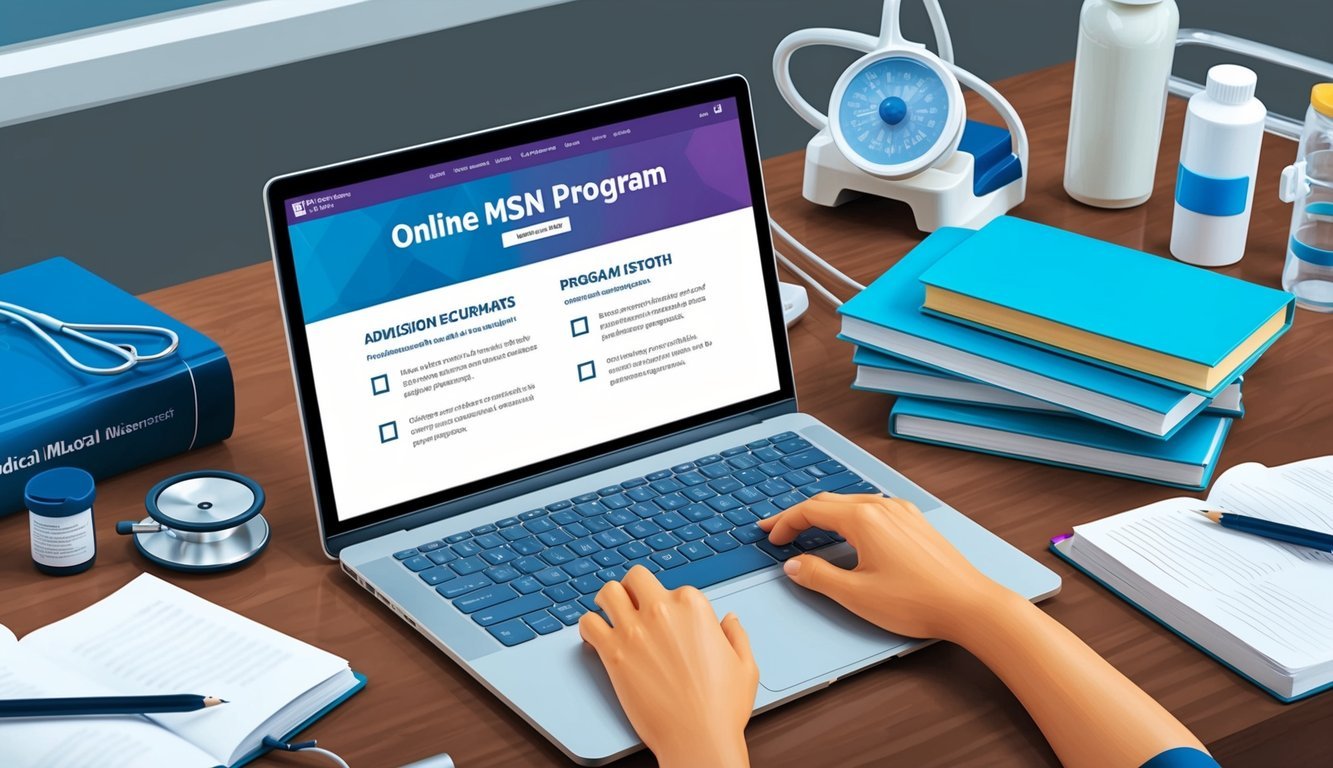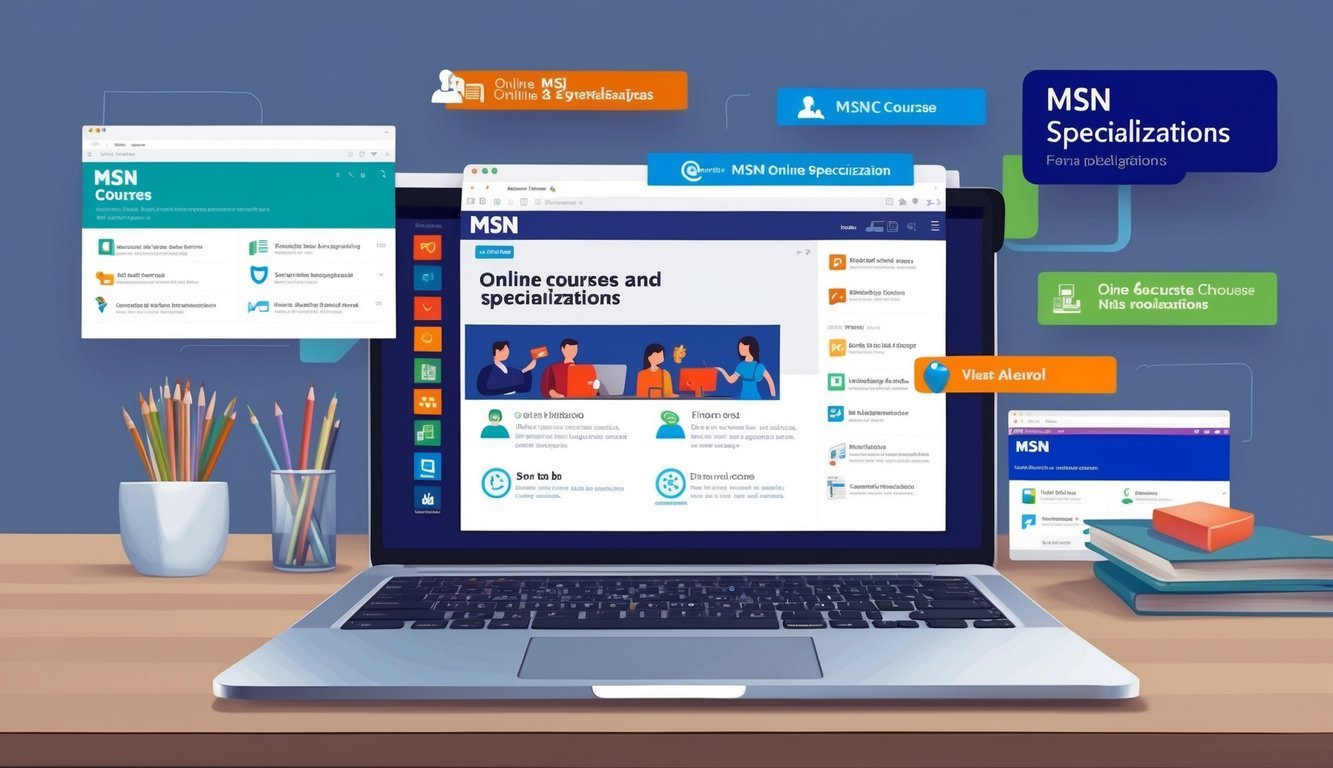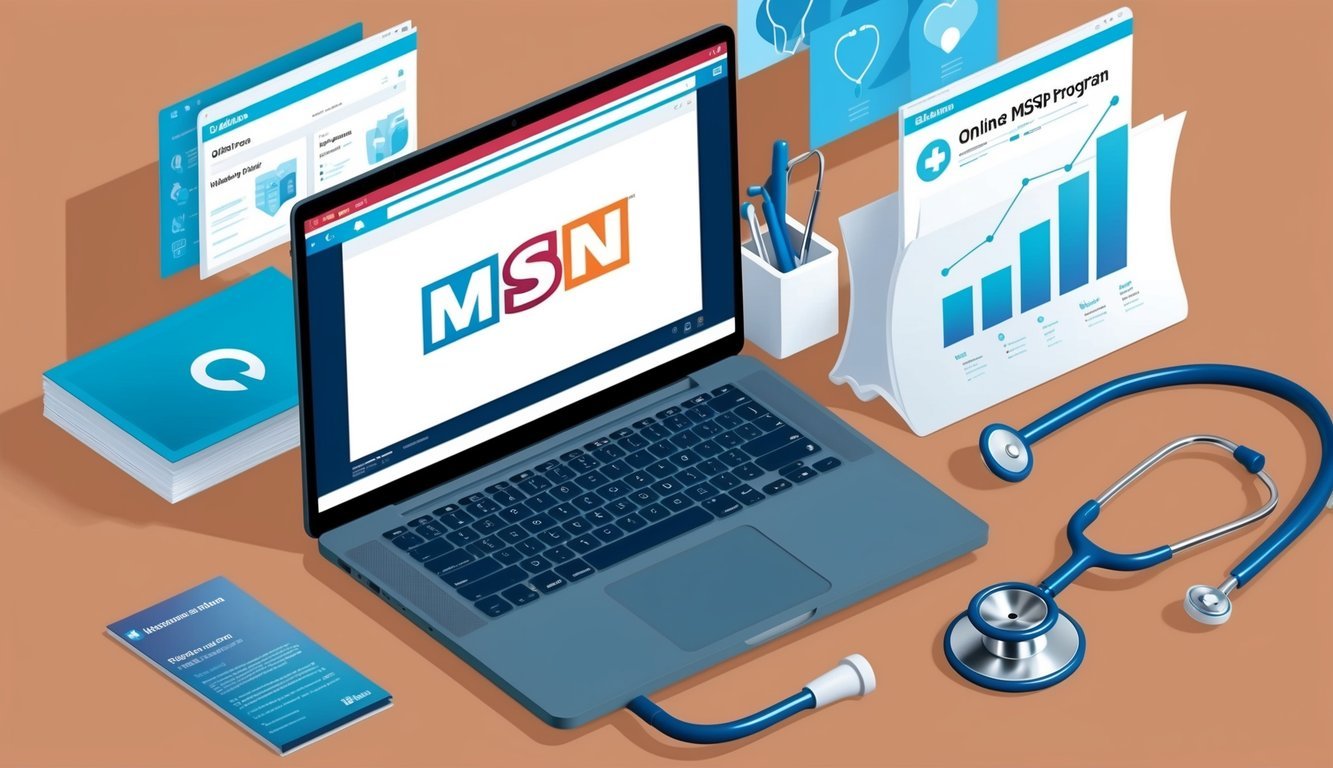Online MSN programs without clinicals offer a unique pathway for nursing professionals seeking to advance their education and careers while avoiding the typical on-site requirements. These programs allow you to pursue specialized knowledge in areas like nursing informatics and leadership without the time commitment of clinical experiences. This flexibility is particularly appealing for those balancing work and personal commitments.
With a variety of online options available, you can choose from several reputable schools that cater to your specific career goals.
Programs range from those that focus on management roles to more specialized areas, providing a comprehensive approach to nursing education that can elevate your practice.
Exploring these online MSN programs empowers you to take charge of your professional development.
Whether you aim to transition into a non-clinical role or enhance your existing expertise, these offerings present a viable solution for achieving your ambitions in nursing.
Consider reviewing programs from resources like Nurse.org and AllNurses to find the best fit for your needs.
Overview of Online MSN Programs
Online MSN programs provide an opportunity for registered nurses to enhance their qualifications.
These programs often focus on developing key competencies for various non-clinical roles in healthcare.
Curriculum Development and Key Competencies
The curriculum for online MSN programs is designed to equip you with advanced knowledge and skills.
Core areas often include nursing theory, health policy, and research methodology.
Key competencies you will develop include:
- Leadership: Enhancing your decision-making abilities.
- Healthcare Informatics: Utilizing technology to improve patient care.
- Public Health Awareness: Understanding community health needs.
Most programs also emphasize critical thinking and effective communication, ensuring you are prepared for leadership roles.
Specializations can include areas such as Nurse Educator and Nurse Executive, focusing on education and administrative skills.
Types of MSN Programs Available Online
You can choose from various types of online MSN programs, catering to different career goals.
Common concentrations include:
| MSN Concentration | Description |
|---|---|
| Nurse Practitioner (NP) | Prepares you for advanced clinical practice. |
| Family Nurse Practitioner (FNP) | Focuses on family-centered care across the lifespan. |
| Psychiatric Mental Health Nurse Practitioner | Equips you to provide mental healthcare services. |
| Nurse Educator | Prepares you to teach future nurses. |
| Nursing Informatics | Blends nursing science with information technology. |
| Public Health | Focuses on health promotion and community well-being. |
These programs often offer flexibility, allowing you to balance education with your current responsibilities.
Finding the right concentration can significantly boost your career opportunities and expertise in the nursing field.
For more information, you can explore options at Nurse.org.
Admission Requirements and Program Length

When considering online MSN programs without clinicals, it’s essential to understand the specific admission requirements and the expected duration of these programs.
This information will help you determine if you meet the prerequisites and how long you’ll need to commit to your degree.
Eligibility and Prerequisites for Enrollment
To enroll in an online Master’s Degree in Nursing, you typically need a few key qualifications:
-
Bachelor’s Degree: Most programs require a Bachelor’s in Nursing (BSN) from an accredited nursing school. If you are a non-nurse, you may need to complete some foundational courses before applying.
-
GPA Requirements: A minimum GPA, often around 3.0, is common for admission.
-
Transcripts: You should provide official transcripts from all post-secondary institutions attended.
-
Resume: A professional resume outlining your academic and any relevant work experience may also be required.
-
Letters of Recommendation: Often, 1-3 letters from academic or professional references are necessary.
Some programs may offer alternative pathways for non-nurses, which may include additional prerequisites like nursing fundamentals courses.
For more in-depth information, check resources on accredited nursing school programs.
Expected Duration of Online MSN Programs
The length of online MSN programs without clinicals can vary widely:
-
Program Duration: Most programs can be completed in 18-24 months, the exact duration often depending on whether you study full-time or part-time.
-
Credit Hours: Generally, these programs require between 36 to 48 credit hours.
-
Flexible Scheduling: Many programs offer asynchronous courses, allowing you to complete assignments at your convenience.
Some institutions, for example, allow completion in as little as 12-18 months if you attend full-time.
Before committing, review individual program specifics, as some may have unique structures or accelerated options.
Core MSN Courses and Specializations

In an online MSN program without clinicals, you will encounter a variety of core courses that provide a strong foundation in nursing leadership and vital specialties.
Understanding these courses will enhance your ability to work effectively in diverse healthcare settings.
Essential Nursing Leadership and Administration Courses
These courses focus on developing essential skills for effective nursing leadership and administration in healthcare organizations.
Topics covered include organizational leadership, quality improvement, and healthcare systems management.
Key components of this curriculum often include:
- Curriculum Design: Understanding how to create effective nursing education programs.
- Advanced Health Assessment: Acquiring skills to perform thorough health evaluations.
- Healthcare Policy Analysis: Learning to analyze and influence health policies that affect nursing practice.
These courses will equip you with the skills needed to lead teams, manage resources, and implement policies that improve patient care.
Informatics, Healthcare Policy, and Evidence-Based Practice
Informatics, healthcare policy, and evidence-based practice are crucial for modern nursing roles.
You will explore how technology and data management can enhance healthcare delivery and outcomes.
Key topics include:
- Evidence-Based Practice: Learning to apply research findings in clinical decision-making.
- Healthcare Policy: Understanding how policies impact nursing and patient care on a systemic level.
- Advanced Pathophysiology: Gaining in-depth knowledge of disease processes to inform practice.
These courses empower you to make data-driven decisions and advocate for effective policies that influence patient care positively.
Integrating Advanced Nursing Practice with Healthcare Trends

Staying informed about the latest healthcare trends is crucial for advanced nursing practice.
Emphasizing technological advancements and addressing public health challenges can enhance care delivery and patient outcomes.
Adapting to Technological Innovations in Nursing
Technological advancements are transforming nursing practices significantly.
Healthcare informatics and clinical information systems automate data management, leading to better decision-making and patient care.
You can utilize telehealth and remote patient monitoring systems.
These tools allow you to provide continuous care, especially important since the COVID-19 pandemic.
Telehealth not only improves access to care but also helps in managing healthcare disparities by reaching underserved populations.
Consider incorporating healthcare simulation in your training as it prepares you for real-world scenarios without risk to patients.
By understanding these technologies, you can advocate for better implementation within your healthcare settings.
Addressing Modern Public Health Challenges
Addressing public health challenges requires a multifaceted approach.
Understanding epidemiology and disease prevention is essential for you as a nursing professional.
You play a crucial role in tackling issues like healthcare disparities through advocacy and community outreach.
Working to educate populations on preventive measures can significantly impact overall health outcomes.
Also, during health crises such as the COVID-19 pandemic, your role in coordinating responses and educating patients is vital.
Stay engaged with current trends to effectively anticipate and respond to public health needs in your community.
Success After Graduation

Graduating from an online MSN program without clinicals opens various pathways for your nursing career.
You can prepare for leadership roles or pursue further education and certifications that enhance your skills and expertise.
Preparing for Nursing Leadership and Advanced Roles
With an online MSN degree, you become well-equipped for advanced nursing roles in leadership.
Your knowledge in organizational management and nursing informatics positions you to make significant contributions to healthcare systems.
Key skills include:
- Financial Management: Understand budgeting and resource allocation.
- Data Management and Analysis: Utilize technology for informed decision-making.
- Health Policy Knowledge: Advocate for effective health policies.
Consider enrolling in specialized programs such as Nurse Leadership Programs or Public Health Programs to further your career.
These programs focus on leadership strategies, enhancing your ability to manage teams and improve patient care.
Continuing Education and Certification Paths
Your MSN doesn’t have to be the end of your education.
Pursuing further certifications not only amplifies your qualifications but also widens your career scope.
Explore options like:
- Nursing Research Programs: These can enhance your ability to contribute to evidence-based practice.
- Nursing Informatics: This specialization allows you to manage patient data and technology integration.
Look for programs with strong accreditation and track records for successful outcomes.
Organizations such as the American Nurses Credentialing Center offer certifications that validate your advanced competencies.
Continuing education can position you for roles such as Clinical Nurse Leader, Director of Nursing, or positions focused on health policy.
Each of these paths deepens your impact on healthcare delivery and opens doors to advanced career opportunities.

